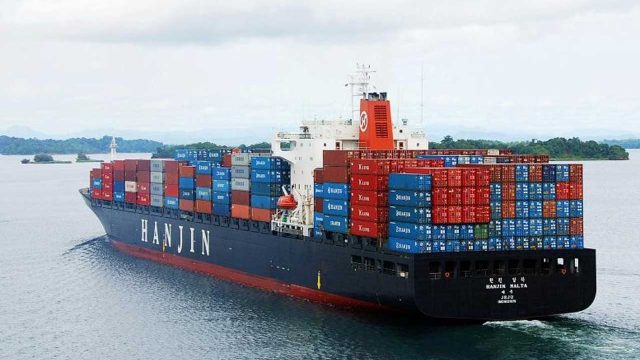Chamber tackles commercial risks in shipping
 Advises government to mitigate risks
Advises government to mitigate risks
To find solutions to the plethora of challenges affecting the shipping industry, the Nigeria Chamber of Shipping (NCS), gathered stakeholders from financial institutions, regulatory agencies, ship operators, owners, and administrators in a continuous three-day training, to discuss and address commercial risks in the sector.
After concluding the training by NSC in collaboration with Lloyd’s Academy in London, stakeholders said the objective of the training was to identify non-commercial risks in shipping that abound within the environment in which they operate, and look for solution toward mitigating the risks.
The President of the chamber, Andy Isichei, said participants have been given tools to help them assess, and mitigate commercial risks in shipping, which in turn, will enhance business survival in the country.
Isichei noted that the issues and challenges discussed would enrich their advocacy campaigns to the appropriate government institutions, stressing that there is always interplay between discipline and implementation for any nation to grow.
He added that although the key thing is for risks to be identified, suggestions have also been noted from different senatorial representatives, regulators, operators (people who owned ships and marine assets), and bankers, which they plan to compile and look into to move the shipping industry forward.
“We intend to circularised this note they took to everybody and people from the financial institutions, regulatory agencies, operators, ship owners and administrators, four groups participated, therein we can find solutions to the plethora of challenges affecting the shipping industrial, there therein we can contribute to current discourse in arriving in an effective maritime strategic of Nigeria. The issues discussed will also help all to go back to their respective organisations to impact them positively,” he said.
A Governing Council member, Nigeria Content Development and Monitoring Board (NCDMB), Mina Oforiokuma, said it is the duty of the Chamber to collaborate with other industries’ stakeholders, and formulate policy documents to advice government on the things that they need to do to mitigate these risks.
As a capacity building programme, he said the training was a contribution toward building in-country capacity in the maritime industry, adding that there is a lot to be done in the area of shipping, marine assets management, and acquisition as the sector lacks adequate capacity.
Oforiokuma, who is also the Governing Council member of the Chamber, and a member of Ship Owners Association of Nigeria, said Nigerians should expect better operation environment for the maritime industry, as the programme will be an ongoing exercise.
“Shipping is a highly capital intensive, and highly specialised business both in terms of downstream and upstream marine assets. In making financial decisions in that area, both as a lender or as an operator, and as a regulator, our role and the objective of this training was to identify the non-commercial risks that abound within the environment in which we operate in Nigeria, and to look for solutions toward litigating these risks. There are a lot of risks, this course has been able to highlight those risks, to allow us advise government and the regulatory agencies on the things that need to be done to make our waters more amendable to the shipping business,” he said.
The Director General, NCS, Obiageli Obi, disclosed that they will a have a focus group meeting with banks in the country, and continue to talk to them to get their support, as only two banks were present.
According to her, participants understand that they need to be more accountable and transparent in the dealings, which will enhance profitability, better efficiency in the system, opportunities and agency collaborations.







